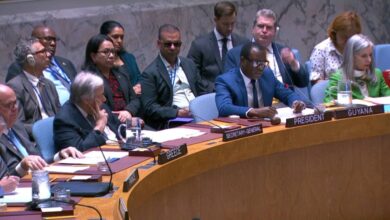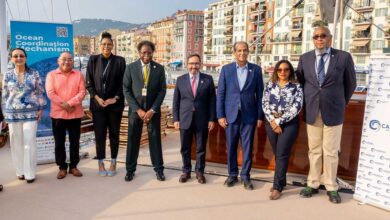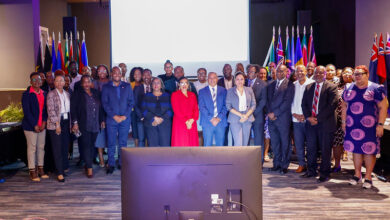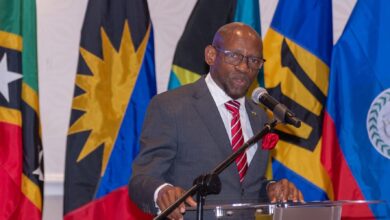(CARICOM Secretariat, Turkeyen, Greater Georgetown, Guyana) Dr. Edward Greene, Assistant Secretary-General Human and Social Development, Caribbean Community (CARICOM) Secretariat, has underscored the integral link between sustainable development and functional cooperation.
According to Dr. Greene, the two elements both help to harness multi-sectoral, multi-cultural and inter-sectoral programmes around a common objective – the integration of the human and social factors of development with the economic and physical elements essential to increasing the well-being and quality of life of the Caribbean peoples.
“No other imperative makes sense,” the Assistant Secretary-General said at the opening of the Twenty-Fifth Special Meeting of the Council for Trade and Economic Development (COTED) on the Environment on 17 April 2008.
Dr. Greene said that the Meeting was significant as much for the fact that it was actually taking place as it was for the ultimate goal of helping to fashion a Caribbean Environment and Natural Resource Policy Framework.
“This is not an easy task given the multifaceted ambit of environmental issues, its widespread impact on the social and political landscape and on the lives and livelihood of the citizens of the Caribbean, and indeed on the future of the Region as a whole, Dr Greene cautioned.
The two-day meeting at the Guyana International Convention Centre at Liliendaal, Greater Georgetown, Guyana followed a meeting of officials which identified a number of sectors and cross-cutting activities to improve the environment and quality of life of the Region’s citizens.
The officials, he said, provided useful suggestions on the way forward for the Region’s environmental agenda, but there were issues yet to be resolved by the Ministerial forum.
In the discussions on how to structure and implement the Caribbean Environmental and Natural Resource Policy Framework, Dr Greene said there was “need to vision that path for the outcomes to be seen as an investment in the future of this Region and the sustainable development of the future of a Community for All.”
He told the gathering that is was evident from their discussions earlier in the week, that the officials had recognized that a “three-ones” principle was a prerequisite for a coordinated, viable and relevant strategy for sustainable development. The `three- ones’ strategy to which he referred was One Policy Framework, One Management Structure; One Resource Mobilisation Plan.
“In addition, however, it seems that there is need for a clearly defined information, education and communication strategy which recognizes the potency of the newer information and communications technologies and their reach to the wider communities of the Region and the world. In this respect, no plan, no management structure and no coordinated resource mobilization strategy could collectively or independently be successful if they are not supported by our journalists and media workers, our educators, lawyers, researchers, other specialists and social workers, among others,” he said.





